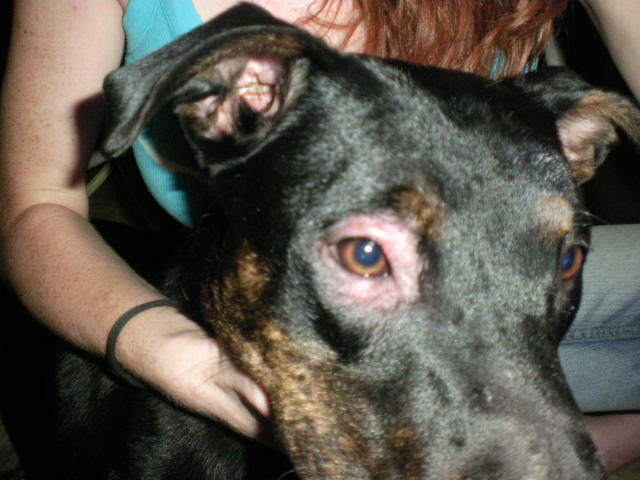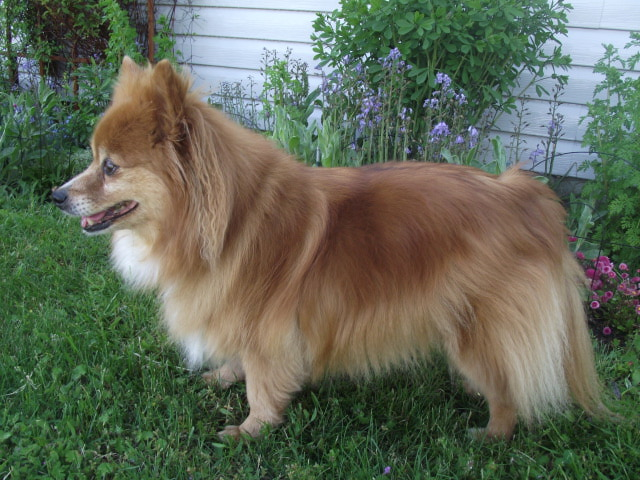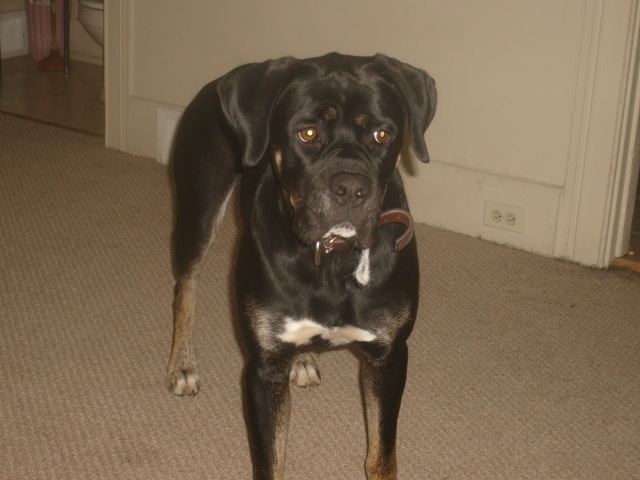QuestionWe have had our new 11-weekold puppy for only 6 days. Retrieving her already flea infested, we immediately rid her of such disturbances. On the 3rd day that we've had her, she went to the Vet for her puppy meds and some ear medicine. We also administered some antihistimine medication to her. The next day she threw up and had a loose stool. She did not eat that day but very little at night. The next day, today, she ate nothing, drank some water but still slept nearly all day. She began to throw up some this evening. Our little Bella has been a joy so far. Is anything seriously wrong with heR?
AnswerHi Katy,
Thank you for writing to me about your sweet puppy. She has been through so much in her short life.
It seems to me that there has been too much at once for your poor girl's immune system and now she is ill.
Please read the following books which I think will be very helpful in guiding the health of your precious girl:
Dr. Pitcairn's The Complete Guide to Natural Health
The Nature of Animal Healing by Martin Goldstein.
There is a site on dog health which includes great information about allergies and the best way to feed your dog. I urge you to spend some time studying the information that this wonderful site has to offer.
http://www.shirleys-wellness-cafe.com/animals.htm
The next subject I want to address is vaccinations! Vets have been over vaccinating which can cause allergies and auto immune disease. What is the relationship between when your dog was last vaccinated and the start of the symptoms? Even if the vaccinations didn't directly cause
this problem, I would refrain from vaccinating except for a three year rabies shot. Go to the following page and follow the links:
http://www.google.com/search?hl=en&ie=ISO-8859-1&q=vaccinations%2C+dogs%2C+dange...
From your description, I would say, that your precious dog could be suffering from allergies. You will also want to explore all the cleaning agents you use, the lawn care products, new carpets, etc. I personally only use Dr. Bronners and vinegar to clean with. In the bathroom I use a small amount of chlorox and then clean over that with Dr. Bronners.
Addressing the food and food allergies:
Food May Be the Cause of Your Dog's Skin Problems.
Food allergies or sensitivities are usually the last suspect in detecting the cause of a dog's skin problems. Most dogs are fed the same type of dog food for years, so the food is rarely suspected. Dogs, like humans, can
develop a sensitivity to any food or additive at any time.
It is estimated that 10 to 15 percent of all allergic skin diseases in dogs and cats is caused by food allergy.
Common Ingredients
Dog food is made up of a combination of ingredients. The most common ingredients that can cause problems in a dog include:
beef
chicken
corn
eggs
fish
lamb
milk
preservatives
pork
soy
wheat
whey
Symptoms
Itchy skin is the primary symptom a dog suffers from food sensitivities.
Other symptoms may include:
anal itching
ear inflammations
hair loss
licking front paws
loss of appetite
face rubbing
head shaking
These following symptoms may manifest but are rare:
asthma like symptoms
behavioral changes
diarrhea
flatulence
seizures
sneezing
vomiting
Steps of Prevention
Be sure to eliminate all the foods in the dog's diet that match the list above, and feed your dog a commericial or homemade diet consisting of ingredients the dog has never eaten before.
The homemade diet should consist of two parts starch and one part protein.
Although duck, salmon, venison, and rabbit are suggested for the protein; pumpkin, sweet potatoes, and squash for the starch; soy and rice are not safe substitutes.
Duck and potato or fish and potato are a good start.
You may be able to select a special commercial dog food blend that suits your dog's needs.
Whatever diet you choose for your dog, it should be the only food the dog ingests during the elimination period.
This means no table scraps, dog biscuits, dog bones, rawhide chews, vitamins, minerals or chewable heartworm pills.This elimination diet is only temporary and once you find out what your dog is allergic to you must
start to add other ingredients to make a complete meal for your dog.
If symptoms begin to improve during the elimination period, you can then reintroduce each of the eliminated food items one at a time. Each food should be tested for a week before another is introduced. This will allow you to pinpoint which foods may be causing problems if symptoms resurface.
Once the offensive food is discovered, then reading dog food labels should help you pinpoint a food that meets the needs of your dog. Although there are many hypoallergenic dog foods on the market, be sure to read the labels carefully. Foods like Solid Gold Fish and Potato might work
wonders for your dog. You can also try Spot's Stew, Avoderm, Venison,Nature's Logic, Paul Newman etc, or continue to make your own food at home. At
least that way the food is fresh and you know what has gone into it.
Of great importance is to have a blood panel done which includes allergy testing and most importantly a thyroid test.
The best of luck with your dog's health. Once you find the cause of the problem, your dog will be feeling healthy and chipper again.
Best,
Shelley Davis

 Eye problems w/ schnauzers
Question
Mini parti schnauzer
We currently have a 14 yr
Eye problems w/ schnauzers
Question
Mini parti schnauzer
We currently have a 14 yr
 7 month old blue healer mix (Cloe)
Question
cloes right eye
Cloe was having really bad eye
7 month old blue healer mix (Cloe)
Question
cloes right eye
Cloe was having really bad eye
 Chewing and ripping apart
Questionbut... im a full time student..... walk her dai
Chewing and ripping apart
Questionbut... im a full time student..... walk her dai
 Shaving a Pomeranian
Question
Brandy my Pomeranian!
I have a few ques
Shaving a Pomeranian
Question
Brandy my Pomeranian!
I have a few ques
 What is my dog
Question
This is the mystery do
a year ago a 11month ol
What is my dog
Question
This is the mystery do
a year ago a 11month ol